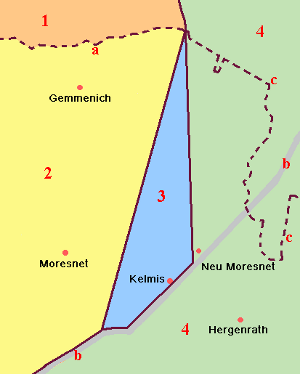
Europe once had a state whose official language was Esperanto. When boundaries were redrawn after the Napoleonic wars, a dispute arose regarding the border between Prussia and the Netherlands, and a sliver of 3.44 square kilometers became a no man’s land known as Neutral Moresnet. In 1908, German immigrant Wilhelm Molly proposed making the territory into the world’s first Esperanto-speaking state. They rechristened the area Amikejo (literally, “friend-place”) and adopted a national anthem, and the International Esperantist Congress even decided to move its headquarters from The Hague to the new “world capital” of the international language.
But it wasn’t to be. Germany overran the tiny territory as World War I broke out, and it was formally annexed by Belgium in the Treaty of Versailles.
Somewhat related: In 2004 deaf journalist Marvin T. Miller proposed building the “world’s first sign language town,” a community whose common languages would be American Sign Language and written English. Miller chose a site in South Dakota and named it Laurent, after Laurent Clerc, who co-founded the country’s first school for the deaf. But the project appears to have stalled due to lack of funding.
